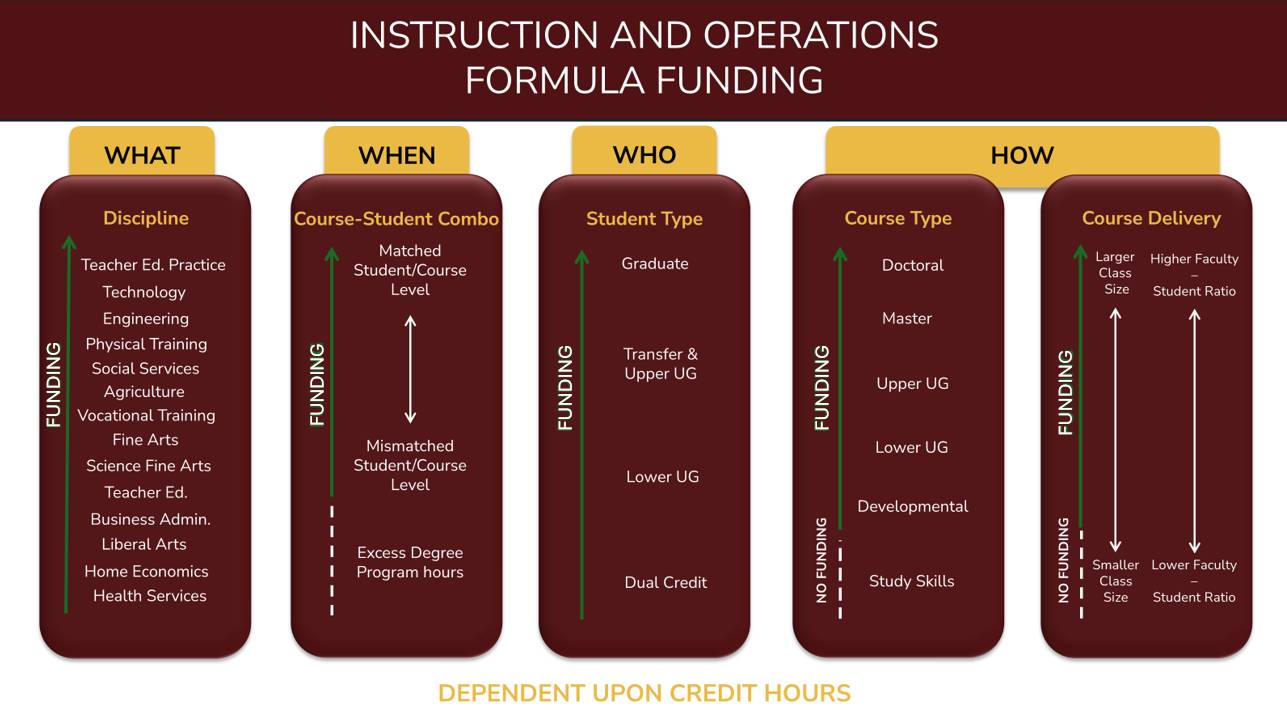Formula Funding
Legislative formula funding is the process used by the Legislative Budget Board (LBB) to allocate general revenue funds to public colleges and universities in Texas.
How It Works
Formula funding is primarily determined by the number of semester credit hours (SCH) taught during base years, which include (1) Summer and Fall semesters of even-numbered years and (2) the Spring semesters of odd-numbered years. For example, the next base year includes Summer 2026, Fall 2026, and Spring 2027. This data determines funding for fiscal years 2028 and 2029.
SCH funding is earned based on student enrollment as of the census date (the 12th class day for Fall and Spring semesters and the 4th class day for Summer semesters). Students added after the census date or withdrawn before it do not generate funding.
For detailed calculations, download the document at the bottom of this section labeled "Overview of Formula Funding Calculations”.
Distribution of Formula Funding
While departments generate formula funding, these dollars are not directly returned to them. Instead, the university pools appropriations and allocates funds to departments based on instructional costs, institutional priorities, and the Unviersity's Strategic Plan. Texas State is also transitioning to a Responsibility Center Management (RCM) Budget Model, which will affect the distribution of formula funding once implemented.
Factors Impacting Funding
Several factors influence the funding Texas State receives:
- Credit hour value of a course
- Academic discipline (e.g., liberal arts, engineering)
- Course level (undergraduate, master’s, doctoral)
- Student level (e.g., doctoral students in master’s courses funded at master’s level)
- Number of enrolled students
- Tenure status of the instructor (tenured/tenure-track faculty teaching undergraduates earn a 10% bonus).
Note: Course funding is based on content and may not align with the department or college offering the course.
Ineligible SCH
Not all SCH are eligible for funding. Such as, SCH for courses that don't count toward degree requirements, SCH from a course attempted three or more times, SCH far exceeding degree plan requirements, or SCH from online courses taken by non-Texas residents living outside the state do not qualify.
Source: General Appropriations Act for the 2024-2025 Biennium

